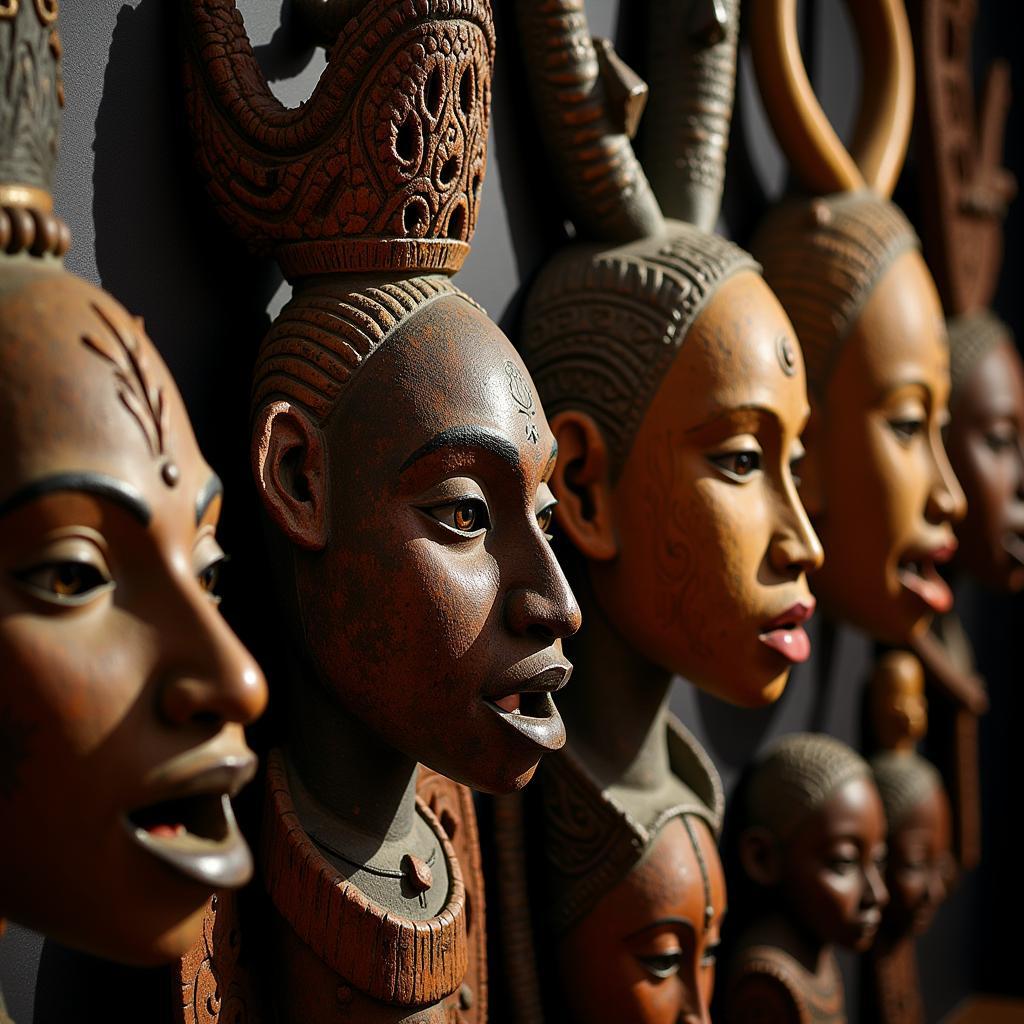African Futurism vs Afrofuturism: Exploring the Nuances of Two Powerful Movements
The terms “African Futurism” and “Afrofuturism” are often used interchangeably, but they represent distinct yet interconnected movements that explore the future of African cultures and identities. Understanding their differences and connections is crucial for appreciating the richness and complexity of these evolving artistic and intellectual expressions.
What is African Futurism?
African Futurism is a contemporary movement that envisions a future for Africa rooted in its unique history, culture, and technological advancements. It emphasizes the continent’s potential for innovation and progress, drawing inspiration from its diverse heritage and its burgeoning tech scene. African Futurism seeks to redefine the narrative about Africa, moving away from colonial narratives and embracing a future driven by African ingenuity and leadership.
Key Characteristics of African Futurism:
- Focus on Africa’s present and future: African Futurism looks at Africa’s current realities and potential, drawing on its technological advancements, economic growth, and cultural dynamism.
- Emphasis on pan-Africanism: It embraces the interconnectedness of African nations and cultures, promoting unity and collaboration across the continent.
- Celebration of African identity: It champions African narratives and perspectives, celebrating the diversity and richness of African cultures.
- Integration of technology: African Futurism often incorporates technology and digital media into its artistic expressions, reflecting the continent’s rapidly evolving tech landscape.
“African Futurism is about reclaiming our narrative and envisioning a future for Africa that is driven by our own ingenuity and imagination. It’s about building a future that reflects the resilience and dynamism of our continent.” – Professor Amani Kamau, Kenyan anthropologist and scholar.
What is Afrofuturism?
Afrofuturism is a genre of science fiction, fantasy, and speculative fiction that explores the African diaspora’s experiences in the context of the future. It draws inspiration from African mythology, history, and cultural traditions to imagine alternative realities and futures, often challenging colonial narratives and exploring themes of liberation, identity, and social justice.
Key Characteristics of Afrofuturism:
- Exploration of alternate futures: Afrofuturism often imagines futures where the African diaspora has overcome oppression and achieved self-determination.
- Blending of African traditions and technology: It blends elements of African mythology, folklore, and spirituality with futuristic technologies and concepts.
- Focus on the African diaspora: It addresses the experiences of people of African descent across the globe, exploring themes of identity, resilience, and resistance.
- Challenge to dominant narratives: Afrofuturism often critiques Western narratives about Africa and the African diaspora, offering alternative perspectives and visions of the future.
“Afrofuturism is about reclaiming our stories and using our imaginations to create new futures where Black people are free and empowered. It’s about using art and culture as tools for resistance and transformation.” – Dr. Christina Sharpe, Canadian writer and scholar.
Distinguishing African Futurism and Afrofuturism
While both movements share commonalities in their exploration of African futures and identities, they have distinct focuses and approaches:
- Scope: African Futurism is primarily focused on the African continent, while Afrofuturism addresses the experiences of the African diaspora globally.
- Focus: African Futurism emphasizes Africa’s present and future, while Afrofuturism often explores alternative realities and futures rooted in the past.
- Themes: African Futurism primarily focuses on technological advancement and pan-Africanism, while Afrofuturism often explores themes of identity, liberation, and social justice.
The Interconnectedness of the Movements
Despite their differences, African Futurism and Afrofuturism are intertwined, with each movement influencing and enriching the other. Afrofuturism’s exploration of alternative futures inspires African Futurism’s vision of a technologically advanced and empowered Africa. Conversely, African Futurism’s focus on Africa’s current realities and technological advancements provides a context for Afrofuturism’s exploration of the diaspora’s future.
The Impact of African Futurism and Afrofuturism
Both movements have made significant contributions to art, literature, music, and film, offering new perspectives and challenging dominant narratives. African Futurism has inspired technological innovation and economic development in Africa, while Afrofuturism has provided a powerful platform for addressing issues of race, identity, and social justice.
Conclusion
African Futurism and Afrofuturism are powerful and transformative movements that offer unique visions of the future for Africa and the African diaspora. By understanding their distinctions and interconnectedness, we can appreciate the richness and complexity of these evolving artistic and intellectual expressions. As these movements continue to evolve, they will undoubtedly continue to inspire new ideas and shape the future of Africa and the world.
FAQ
Q: What are some examples of African Futurism?
A: Some examples include the work of Nigerian architect Kunle Adeyemi, whose designs for floating structures address challenges related to climate change and urbanization in Africa.
Q: What are some examples of Afrofuturism?
A: Some examples include the novels of N.K. Jemisin, whose work explores themes of race, identity, and social justice in a futuristic context.
Q: What are the potential benefits of these movements?
A: Both movements have the potential to foster technological innovation, economic development, and social justice in Africa and the African diaspora.
Q: How can I get involved in these movements?
A: You can engage with these movements by supporting African and Afrofuturist artists, reading their work, and attending events and conferences related to these movements.
Q: What are some other related topics I can learn about?
A: You might be interested in learning more about African science fiction, African cyberpunk, or the history of African futurism and Afrofuturism.
